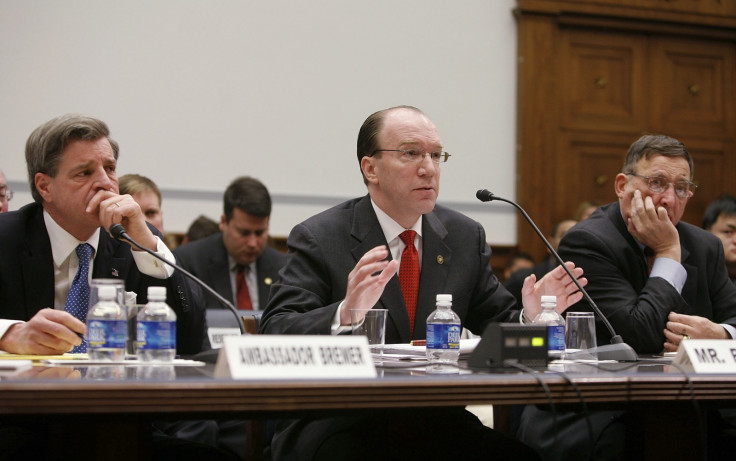'More Than $1 Billion Stolen Iraqi Cash Hidden in Bunker,' Claims Investigator
Stuart W Bowen said that attempts to investigate the lead were dropped

More than $1bn (£620,000) of Iraqi reconstruction funds were stolen and hidden in a bunker in Lebanon, believes a corruption investigator.
In the aftermath of the US-led invasion of Iraq in 2003, $12bn-$14bn was withdrawn from Iraqi government bank accounts in the US and flown to the country to inject money into the country's sanction- and war-ravaged economy and prop up ministries.
In the chaos of post-war Iraq, billions went unaccounted for. Stuart W Bowen Jr was appointed by then-president George W Bush, who he had previously worked with, to track down the missing money.
Bowen believes he tracked down $1.2bn-$1.6bn of the stolen funds to a secret bunker in Lebanon, before his office, the Special Inspector-General for Iraq Reconstruction, was shut down by Congress last year.
Lebanon cash pile
"I don't know how the money got to Lebanon," Mr. Bowen said. "If I knew that, we would have made more progress on the case," he told author James Risen, in his book Pay Any Price: Greed, Power and Endless War.
Bowen said that despite reporting his findings to the Obama administration it chose not to pursue the lead, and said that the Bush administration had also failed to pursue allegations of missing funds.
He said that he also reported the existence of the bunker to former Iraqi prime minister Nouri al Maliki, who failed to take action, and complained about the way the Americans had handled the cash when it entered the country.
The money came from the Development Fund of Iraq, which was created in 2003 by the UN with Iraqi oil revenue to be used for the country's reconstruction.
'Iraqi money stolen by Iraqis'
Paul Bremer, who was head of the Coalition Provisional Authority, which ruled Iraq in the aftermath of the invasion, said that the funds were necessary to keep vital Iraqi ministries open.
The Iraqi government "was broke at that point" Mr Bremer said. "Civil servants had not been paid for about three months. We had to get funds there right away," and said that the authority accurately accounted for the cash received before distributing it to the finance minister.
Bowen said that the investigation into the bunker funds started in 2010, when a member of his staff received a tip-off from a Lebanese contact.
He said that subsequently he and his staff were met with a wall of resistance when they tried to investigate the claims, with the CIA showing no interest in pursuing them, and the Lebanese government blocking attempts by Bowen and his investigators to visit the bunker.
Bowen said that the reason US officials had chosen not to pursue the allegations was "because it was Iraqi money stolen by Iraqis".
© Copyright IBTimes 2025. All rights reserved.






















